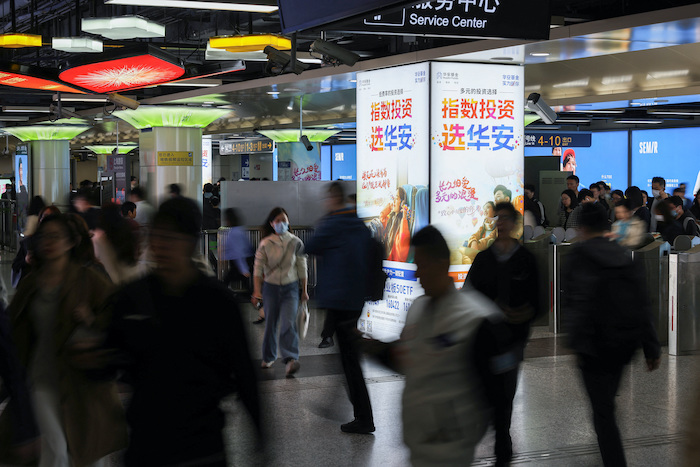China has been forced to unveil new measures to stabilise employment as its economy deteriorates amid elevated trade tensions with the United States and the European Union.
A notice issued on Wednesday by the State Council noted that local governments in some regions will issue bigger social insurance subsidies, plus special loans and targeted support for young people looking for jobs.
They will raise unemployment insurance refund rates for small firms from 60% to a maximum 90% and from 30% to 50% for large firms, the State Council – which is China’s cabinet – said.
ALSO SEE: Price of Copper Soars After Trump’s 50% Tariff Threat
Firms facing operational difficulties may apply to defer contributions to pension, unemployment, and work injury insurance, it said, according to Reuters.
“Local governments and departments must take political responsibility for stabilising employment, track policy implementation, and introduce new measures promptly.”
Authorities will also roll out incremental policies according to changes in the employment situation, the Council said.
Firms hiring unemployed youth aged 16–24 under contracts and paying full insurance for at least three months may receive a one-time subsidy of up to 1,500 yuan ($209) per person, it added.
Local governments should expand access to vocational education by allowing unemployed youth and migrant workers to enrol in technical schools, with relaxed age restrictions, the cabinet said.
The jobless rate for 16- to 24-year-olds in China, excluding college students, dropped to an 11-month low in May but remained elevated at 14.9%, data from the National Bureau of Statistics showed last month.
The unemployment rate for 25 to 29-year-olds, excluding students, also slid slightly to 7.0% from 7.1% a month earlier, the data showed.
Recent business surveys, however, suggest Chinese firms are under growing pressure to cut wages and jobs to stay afloat amid tepid demand at home and abroad.
Deflation in June was worst in two years
China‘s producer deflation deepened to its worst level in almost two years in June as the economy grapples with uncertainty over a global trade war and subdued demand at home, piling pressure on policymakers to roll out more support measures.
While consumer prices rose for the first time in five months, the upturn was marginal as a prolonged housing market downturn in the world’s second-biggest economy added to headwinds from US President Donald Trump’s tariffs on trading partners.
The producer price index fell 3.6% in June from a year earlier, worse than a 3.3% decline in May and the largest fall since July 2023.
Some export-oriented industries are under pressure in price terms, NBS statistician Dong Lijuan said.
“The uncertainty of global trade environment has affected the export expectations of enterprises,” Dong said.
Price wars spurred by weak consumption
Subdued domestic demand remains a drag on China‘s economy and has forced companies to slash prices and discounts to boost sales, prompting the authorities to urge an end to the auto industry’s bruising price wars.
Highlighting the tepid consumer market, Chinese e-commerce giants Alibaba and JD.com have pledged heavy subsidies over recent months to expand aggressively into fast deliveries.
The consumer price index edged up 0.1% last month from a year earlier, reversing a 0.1% drop in May.
The consumer price uptick was “mainly due to a rebound in industrial consumer goods prices,” Dong said.
On a monthly basis, the CPI was down 0.1% versus a 0.2% decline in May.
Core inflation, excluding volatile food and fuel prices, spiked to 0.7% in June from a year earlier, the highest in 14 months.
- Jim Pollard with Reuters
ALSO SEE:
China Warns US, SE Asia: We’ll Hit Back on Supply Chain Deals
Air Cargo From China to US Sinks After End of Tax Loophole
Beijing Moves to Prop up Solar Panelmakers Hit Hard by Price War
China’s Criticism of Price Wars Sheds Light on Xi’s ‘Waning’ Power
Chinese EV-Makers Eyeing South Africa Amid Global Trade Rows
China Passes 1 Terawatt of Solar Power, Government Says
Local Officials in China Backed Export of ‘Zero-Mileage Used Cars’
Flood of Cheap Chinese EVs in Brazil Sparks a Backlash
China’s Intense EV Price War Taking a Toll on Car Dealers
























